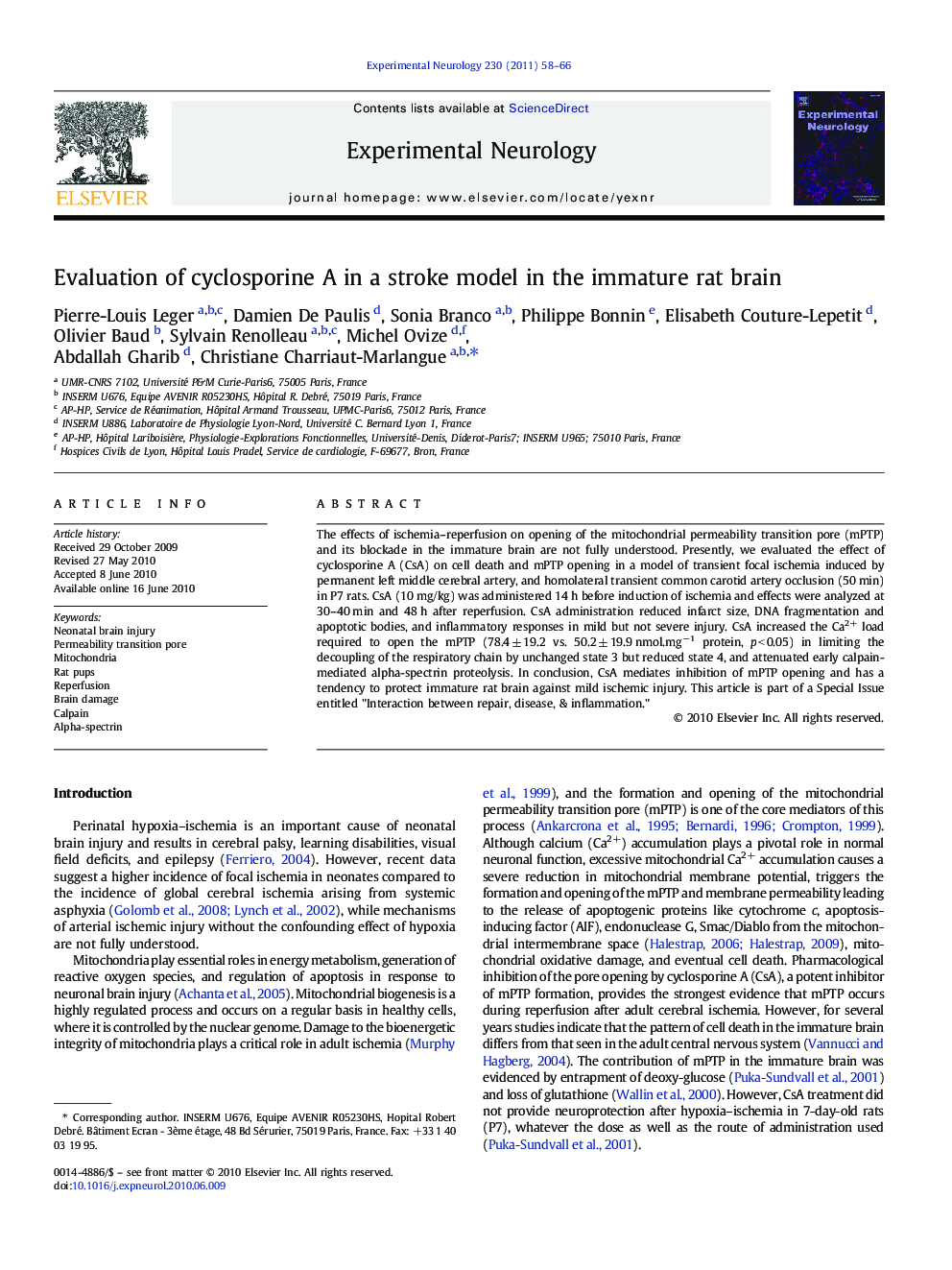| Article ID | Journal | Published Year | Pages | File Type |
|---|---|---|---|---|
| 6019221 | Experimental Neurology | 2011 | 9 Pages |
The effects of ischemia-reperfusion on opening of the mitochondrial permeability transition pore (mPTP) and its blockade in the immature brain are not fully understood. Presently, we evaluated the effect of cyclosporine A (CsA) on cell death and mPTP opening in a model of transient focal ischemia induced by permanent left middle cerebral artery, and homolateral transient common carotid artery occlusion (50 min) in P7 rats. CsA (10 mg/kg) was administered 14 h before induction of ischemia and effects were analyzed at 30-40 min and 48 h after reperfusion. CsA administration reduced infarct size, DNA fragmentation and apoptotic bodies, and inflammatory responses in mild but not severe injury. CsA increased the Ca2+ load required to open the mPTP (78.4 ± 19.2 vs. 50.2 ± 19.9 nmol.mgâ1 protein, p < 0.05) in limiting the decoupling of the respiratory chain by unchanged state 3 but reduced state 4, and attenuated early calpain-mediated alpha-spectrin proteolysis. In conclusion, CsA mediates inhibition of mPTP opening and has a tendency to protect immature rat brain against mild ischemic injury. This article is part of a Special Issue entitled "Interaction between repair, disease, & inflammation."
Research highlights⺠Cyclosporine A before ischemia decreases cell death in P7 rats. ⺠Ischemia involves mitochondrial permeability pore transition (mPTP) opening early after reperfusion. ⺠Cyclosporine A blocks mPTP opening. ⺠Cyclosporine A inhibits calcium-dependent calpain activation.
